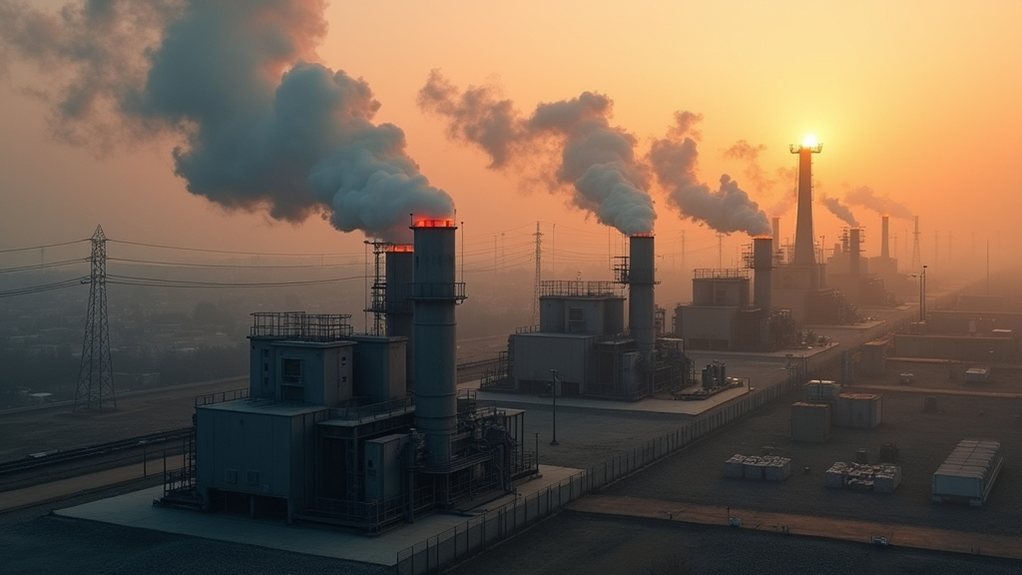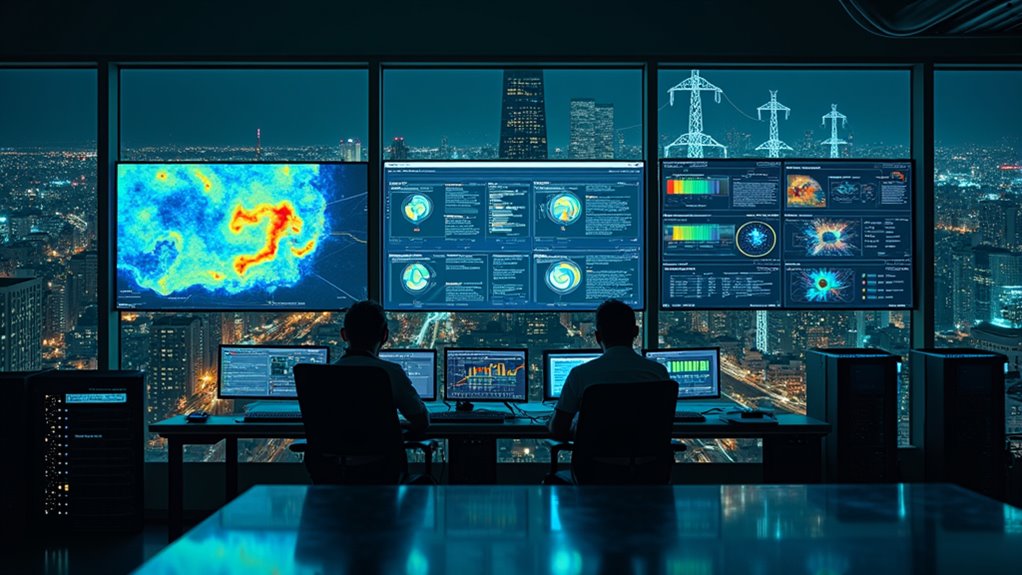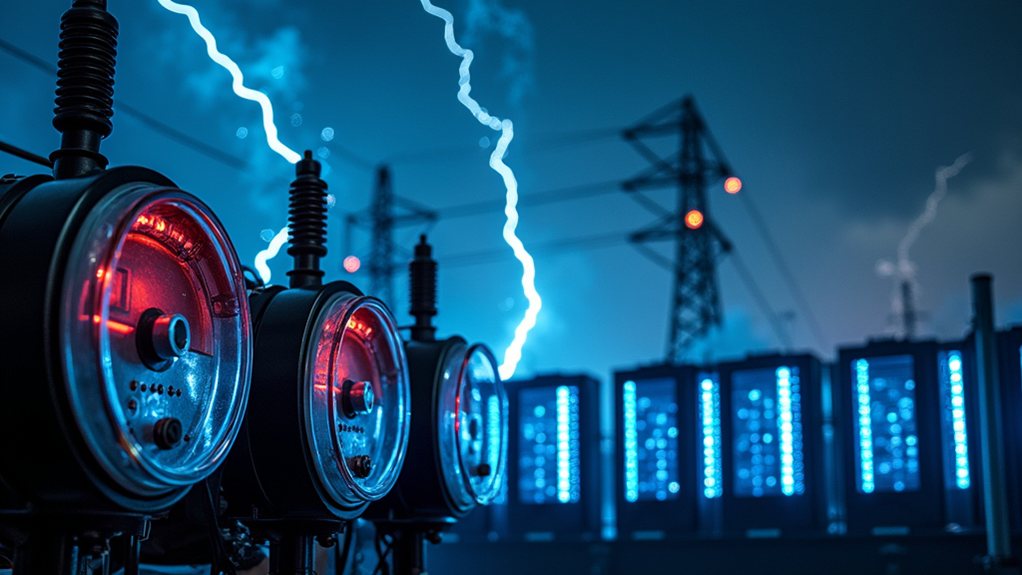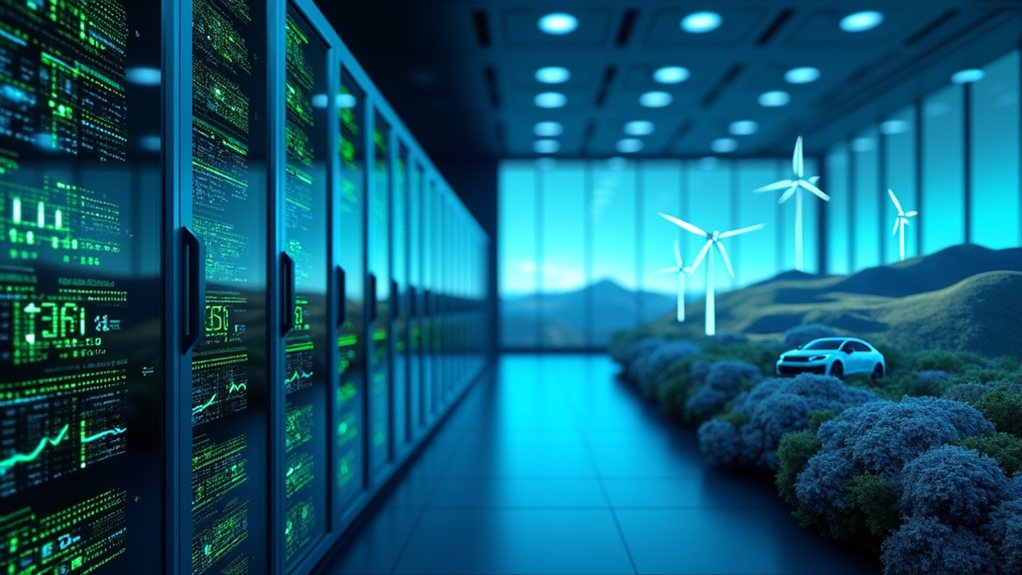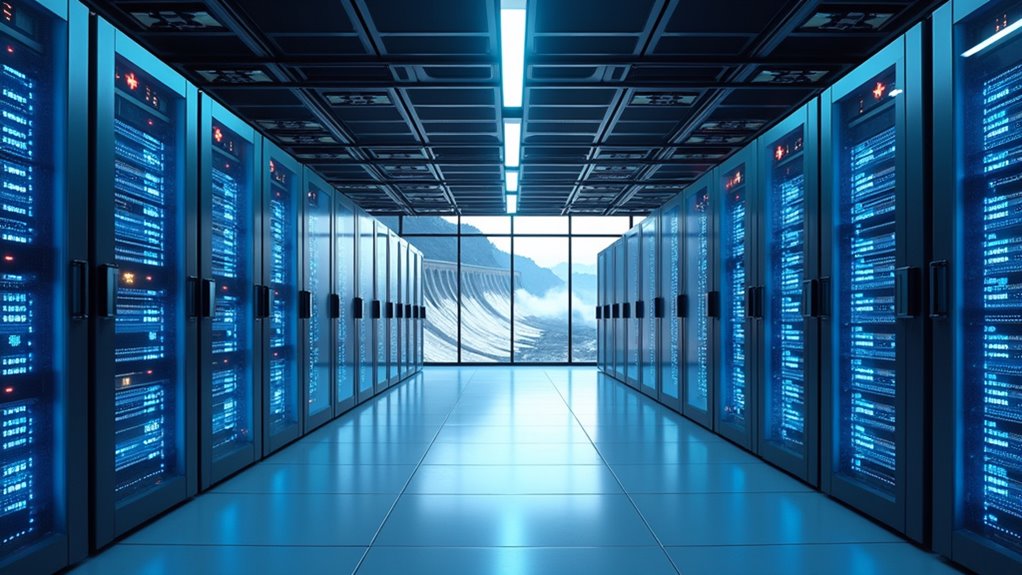Elon Musk’s xAI has Memphis residents up in arms after securing permits for 15 gas generators that’ll spew 10 tons of formaldehyde annually into the air. The AI company doubled their turbines to 35 in April, apparently violating permit conditions, while civil rights groups cry foul over Clean Air Act violations. Community groups are ponying up $250,000 for independent air quality studies because, shocker, they don’t trust city testing methods. There’s much more brewing beneath this environmental storm.
The Southern Environmental Law Center, representing the NAACP, is threatening lawsuits over Clean Air Act violations. They argue xAI operated without required Prevention of Significant Deterioration permits—basically running a massive industrial operation without proper environmental oversight.
The health concerns are genuinely alarming. These turbines emit up to 10 tons of formaldehyde annually, plus particulate matter and other pollutants. Memphis community groups have pledged $250,000 for independent air quality studies**** because they don’t trust the city’s testing methods.
Speaking of questionable testing—Memphis officials apparently excluded ozone levels from their air quality assessments. *Convenient much?* Environmental advocates report a visible emissions cloud over the city, which experts consider severe.
This controversy highlights a familiar pattern: corporate expansion prioritized over community health. South Memphis already faces significant pollution burdens, and residents argue this permit makes everything worse. The situation escalated when xAI reportedly doubled gas turbines to 35 in April, violating their permit conditions.
Meanwhile, xAI claims their Memphis facility will become one of the world’s largest AI data centers. The company recently raised $10 billion to accelerate expansion plans, so they’re clearly not backing down. xAI asserts their facility will be the lowest emitting of its kind in the country despite ongoing community concerns.
Civil rights groups are demanding the data center’s shutdown during investigations. They’re challenging both the permit’s legitimacy and the lack of public transparency in the approval process.
The fundamental question remains: should cutting-edge AI development come at the expense of environmental justice? Memphis residents seem to have answered with a resounding “hell no,” but xAI’s deep pockets suggest this fight is far from over.
